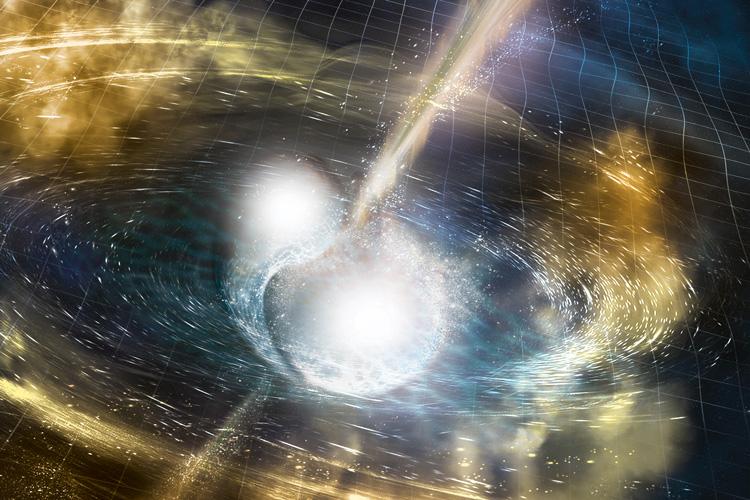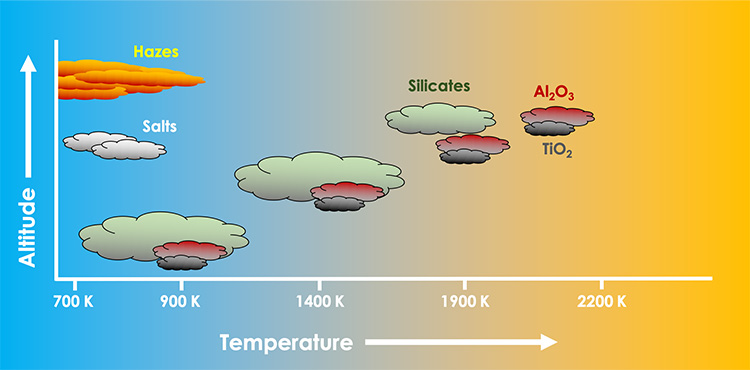-
UC Berkeley Astronomer to appear on Jeopardy! this week
February 22, 2021
UC Berkeley Astronomer Ken Shen will be appearing on Jeopardy! on Wednesday, February 24, 2021. On the experience of his competing in the famous television show, Shen writes: “My greatest fear was that an astronomy or physics clue would show up and I'd flub it. Luckily, I don't think that happened, but honestly, everything was a blur. If you'd like to know some more about the process and what filming is like, I'll be posting threads on Twitter for the next few days. The first one is here: https://twitter.com/kenjshen/status/1362842364826423298”
More -
Active volcanoes feed Io’s sulfurous atmosphere
October 21, 2020
The atmosphere on Jupiter’s moon Io is a witches’ brew, composed primarily of the sulfurous exhalations of more than 400 volcanoes that dot the surface. Until now, however, it has been unclear whether volcanoes spewing hot sulfur dioxide (SO2) are the main contributors to the atmosphere, or whether the main component is the accumulated cold SO2,much of which is frozen on the surface, but in sunlight evaporates or sublimates into the atmosphere. New observations with the Atacama Large Millimeter/submillimeter Array (ALMA) in Chile, led by astronomer Imke de Pater of the University of California, Berkeley, partially resolve that question. Read…
More -
Congratulatory Ceremony for Reinhard Genzel
October 7, 2020
Please enjoy this edited video recording of the online congratulation of Nobel Prize winner Reinhard Genzel by UC Berkeley. https://www.youtube.com/watch?v=iltUStT9f2A
More -
UC Berkeley played big role in Nobel Prize-winning work
October 7, 2020
Huge leaps in technology allowed Reinhard Genzel to probe stars zipping around the center of the Milky Way galaxy 25,000 light years away, eventually earning him a portion of the 2020 Nobel Prize in Physics. But later in the day, Zoom technology proved too balky to bridge the gap between the physicist, currently in Munich, and his fans in Berkeley. Genzel, a Berkeley professor emeritus of physics and astronomy, as well as director of the Max Planck Institute for Extraterrestrial Physics in Germany, credited the late Berkeley Nobel laureate Charles Townes for initiating the studies that led to the discovery. Decades…
More -
UC Berkeley’s Reinhard Genzel awarded Nobel Prize in Physics
October 6, 2020
Reinhard Genzel, a professor emeritus of physics and of astronomy at the University of California, Berkeley, and director of the Max Planck Institute for Extraterrestrial Physics in Garching, Germany, will share half the 2020 Nobel Prize in Physics with UCLA professor Andrea Ghez “for the discovery of a supermassive compact object at the center of our galaxy.” Read More
More -
Stuart Bowyer, pioneer of EUV astronomy and SETI, dies at 86
October 5, 2020
Stuart Bowyer, an astronomer who convinced NASA to launch the first satellite to study the heavens in extreme ultraviolet wavelengths and started one of the longest running searches for extraterrestrial intelligence (SETI) in the world, died Sept. 23 at a hospital near his home in Orinda, California. His family said the cause was complications associated with COVID-19. Bowyer, a professor emeritus of astronomy at the University of California, Berkeley, was 86. Read more
More -
New center to focus on physics of ultra-dense neutron stars
August 20, 2020
The National Science Foundation (NSF) has awarded UC Berkeley $10.9 million over five years to expand research on the exotic state of matter inside neutron stars — the dense remains of exploded stars — and what can be learned from the growing number of gravitational wave detectors now listening for the spacetime vibrations generated by the violent merger of two neutron stars. The Network for Neutrinos, Nuclear Astrophysics and Symmetries (N3AS) is an NSF Physics Frontier Center led by Wick Haxton, Berkeley professor of physics and a theoretical nuclear physicist at Lawrence Berkeley National Laboratory (Berkeley Lab). The N2AS center,…
More -
Rogue’s gallery of dusty star systems reveals exoplanet nurseries
June 24, 2020
Astronomers this month released the largest collection of sharp, detailed images of debris disks around young stars, showcasing the great variety of shapes and sizes of stellar systems during their prime planet-forming years. Surprisingly, nearly all showed evidence of planets. “It is often easier to detect the dust-filled disk than the planets, so you detect the dust first and then you know to point your James Webb Space Telescope or your Nancy Grace Roman Space Telescope at those systems, cutting down the number of stars you have to sift through to find these planets in the first place,” said Tom…
More -
Astronomers create cloud atlas for hot, Jupiter-like exoplanets
May 26, 2020
A team of astronomers from the United States, Canada and the United Kingdom have now come up with a model that predicts which of the many types of proposed clouds, from sapphire to smoggy methane haze, to expect on hot Jupiters of different temperatures, up to thousands of degrees Kelvin. “The kinds of clouds that can exist in these hot atmospheres are things that we don’t really think of as clouds in the solar system,” said Peter Gao, a postdoctoral fellow at the University of California, Berkeley, who is first author of a paper describing the model that appeared May…
More -
Evening with the Stars – May 2020
May 26, 2020
How Do We Detect Life on Planets Orbiting Nearby Stars? Please enjoy this recorded presentation given on May 13th, 2020 by Professor Courtney Dressing and her research group by clicking on the image below.
More









